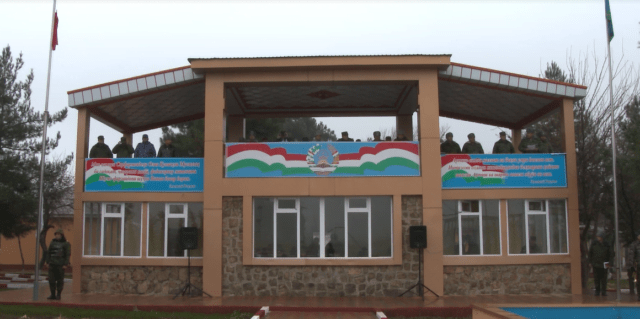
Author: Giuliano Bifolchi
Recent counterterrorism military drills in Tajikistan highlighted Dushanbe’s necessity to upgrade its readiness and expertise in facing terrorist threats inside the country and jihadist activities from neighbouring areas of Afghanistan.
Geopolitical sceanrio
The Tajik Defense Ministry press centre reported that special forces units attended counter-terrorist exercises at the Fakhrabad training centre of the Khatlon garrison. The military exercises are part of the Strategy for Countering Extremism and Terrorism in Tajikistan for 2021-2025.
The Ministry of Defense emphasised that the primary goal of the exercises is to resolve the conflict situation and take public law and order under the control of law enforcement agencies. In addition, the military units practised conducting joint special operations, such as the transfer of the central units and the pursuit and destruction of conditional illegal gangs.
During the exercises in the south of Tajikistan, special forces units of the Tajik Armed Forces worked out various anti-terrorist methods. The military used human resources, armoured vehicles, combat aircraft and other modern weapons in service with the Tajik Armed Forces.
Why does it matter?
- Tajikistan can face domestic turmoils and protests, which might undermine the country’s stability and the central government’s authority. The political crisis in May 2022 in the Gorno-Badakhshan Autonomous Region (GBAO) and the rise of terrorists and extremists in the country alarmed Tajik authorities. Therefore, Dushanbe decided to boost its military readiness and security cooperation with regional powers such as the Russian Federation and the People’s Republic of China to contrast any domestic and foreign threats.
- Tajikistan must secure its borders with neighbouring Afghanistan. Since the Taliban took power in August 2021 and due to the Islamic State Khurasan Vilayat (ISKP) jihadist propaganda and violent attacks inside the Afghan territory, Dushanbe has constantly expressed concern over the security situation at the Tajik-Afghan borders. The establishment of Tehrik-e-Taliban Tajikistan (TTT) in July 2022 confirmed Tajik concerns over Afghanistan and pushed Dushanbe to enlarge its security cooperation and combat readiness against terrorist groups.
- Russia, China, and the United States might exploit Tajik worries about the terrorist threat to confirm and increase their presence in the Central Asian republic. Dushanbe has increased military and security cooperation with Moscow, which had a military base in the country, and Beijing, which supported the Tajik Government in the project to establish a military base in the GBAO, to address the security and terrorist problems in the area.
Washington has also supported the Tajik defence sector to secure the country’s border with neighbouring Afghanistan. Indeed, in October 2022, The U.S. Department of Energy’s Office of Nuclear Smuggling Detection and Deterrence confirmed its willingness to cooperate with the Tajik Border Patrol along the border with Afghanistan. - Tajik authorities might use the terrorist threat to counter domestic political opposition, generating widespread disappointment and a fertile ground for jihadist propaganda. As happened in the GBAO protests in 2022, Tajik authorities declared might use military forces to stabilise the country in case of local turmoil or political rally, exasperating in the future the regional social situation and pushing local young generations towards terrorist organisations such as the Islamic State, which started propaganda orchestrated to recruit people from Tajikistan, Uzbekistan and Kyrgyzstan.



